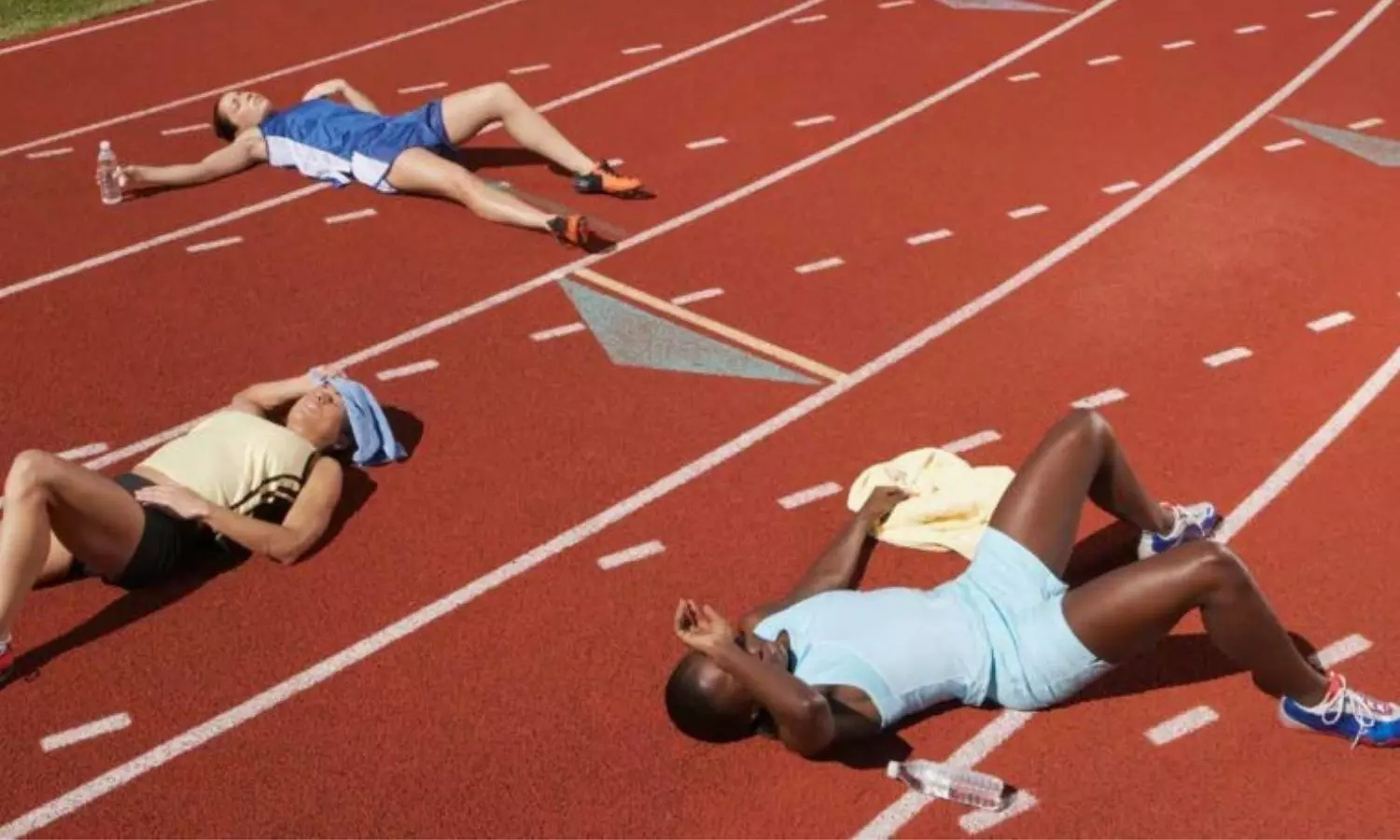Tokyo 2020
Excessive heat in Tokyo could make it the worst Olympics
If the two weeks at the Tokyo Olympics encounter high temperatures and humidity combined, Tokyo might become the worst (games) in history

excessive hot temperature in tokyo (Source: No Coal Japan)
If you are asked about the public health threat faced by the athletes at the Olympics this year, your answer most probably will be the pandemic. But is that all? Seems like problems don't want to cease during the Tokyo Olympics.
Another major issue that has been broadly discussed is still a prime topic during the summer games: Excessive heat. The forecast predicts that this year's multi-national sports event is going to be the hottest in decades. This poses a danger of heatstroke or sickness for the athletes when they are already under tremendous physical and mental pressure.
Extreme heat in the region has been a cause of concern for the Olympics in Tokyo before as well. During the 1964 Olympics, they shifted the entire event to October due to the high summer temperatures. The temperature in the city has increased by 2.86 degrees Celcius since 1900 which is more than three times as fast as the world's average.
With the increased temperature, everything seems to be going in the wrong direction as Japan usually experiences its highest annual temperatures during the time period ranging from July 23 to August 8 when the Olympics are scheduled to happen. The average high temperatures have reached 40 degrees Celcius (104 F) in recent years during late July to early August in Japan which could be deadly.
In 2018, the heatwave resulted in more than 1,000 deaths as per the Government of Japan.
"Combining this heat with very high humidity has led to several deadly summer heatwaves across Japan in recent years. These conditions will no doubt put extreme strain on athletes in outdoor venues, " said CNN meteorologist Taylor Ward.
An advisor of the Tokyo Organising Committee, Makoto Yokohari, is of the same opinion stating that "When it comes to heat stress or heat stroke, the problem is not only the temperature but also the humidity as well. When you can combine these two...Tokyo is the worst (games) in history."
Due to these reasons, organizers have decided to move some events to a new location away from Tokyo including the marathon where the temperature is expected to be cooler. The International Olympic Committee (IOC) has also taken charge to take care of the health and well-being of the athletes.
They quoted that, "a wide range of measures are being taken...to mitigate the effects of the temperature which may occur." Other than the location, they have incorporated the elements to change the times of some events, equipping events with shades, water sprays, and good access to water supplies.
Team USA has been preparing for such situations long before the reports to help every athlete to be ready physically, physiologically, emotionally and confidence-wise.
The excessive heat conditions could be a game-changer as Randy Wilber, the U.S.Olympic and Paralympic Committee's senior sports physiologist says, "Athletes who prepare effectively for heat and humidity can beat a lot of athletes who have more talent that they do but who have not prepared effectively for heat and humidity."
Scientifically speaking, overheating can affect muscle and cardiovascular function which is worsened by the fact that if the athlete gets dehydrated, this might lead to organ failure, heatstroke, or even death. It also affects cognitive function and reduces the ability of people to perform complex tasks which are required in sports.p
Melissa Wilson, Great Britain's Olympic rower, stated in a recent report by the British Association for Sustainable Sport on how heat could affect the 2021 Olympics that, "I think we're certainly approaching a danger zone." During the 2019 Tokyo Trials, three rowers were exhausted from the heat and given medical treatment thereafter.
As per the report, "It's a horrible moment when you see athletes cross the line, their bodies fling back in total exhaustion and then not rise up."
We can pray that any harsh conditions do not affect the health of the athletes. Scorching heat and excessively humid conditions hold the capacity to turn this enthusiastic sports event into a nightmare for the players tagging it the worst Olympics ever.
